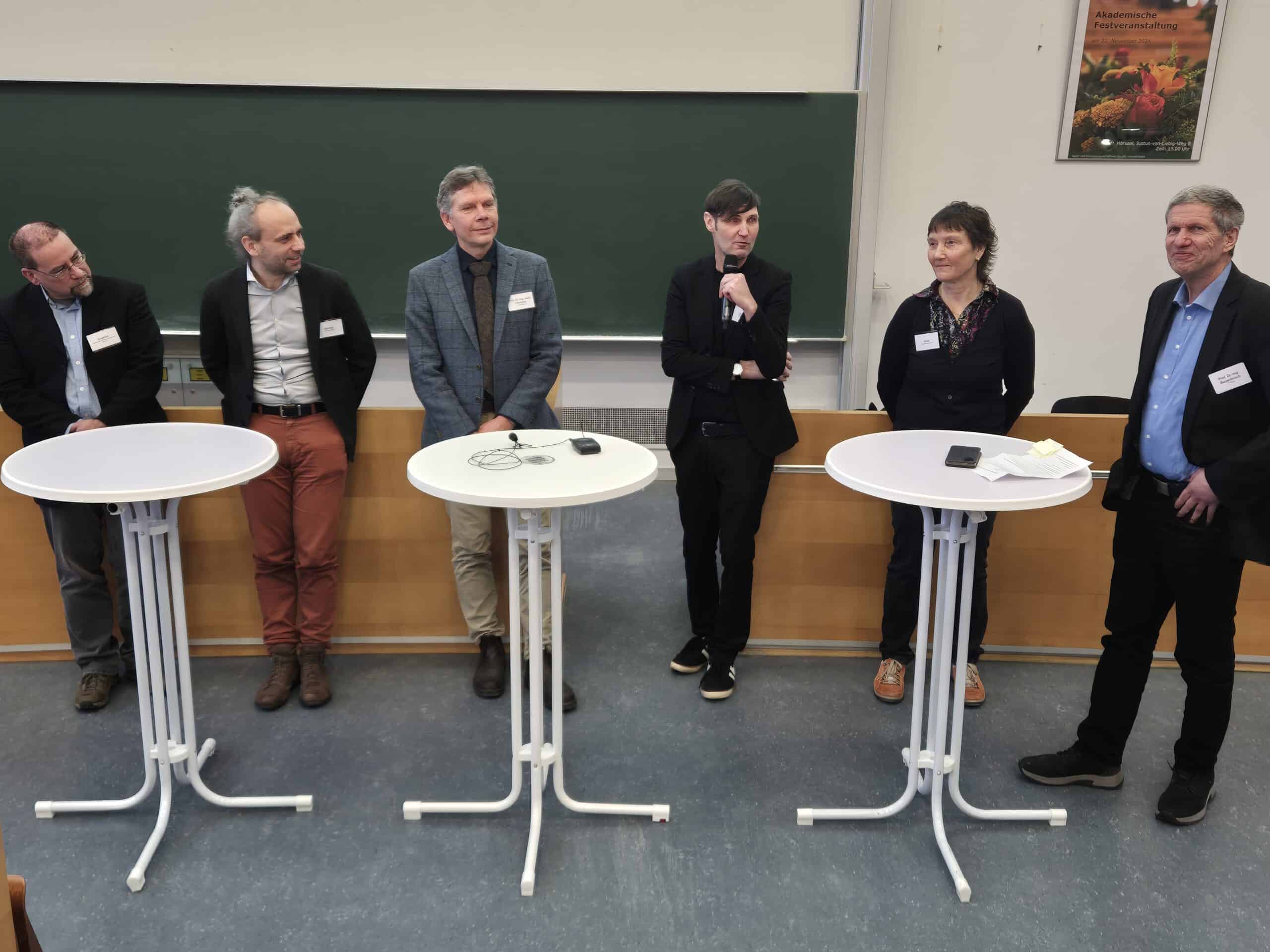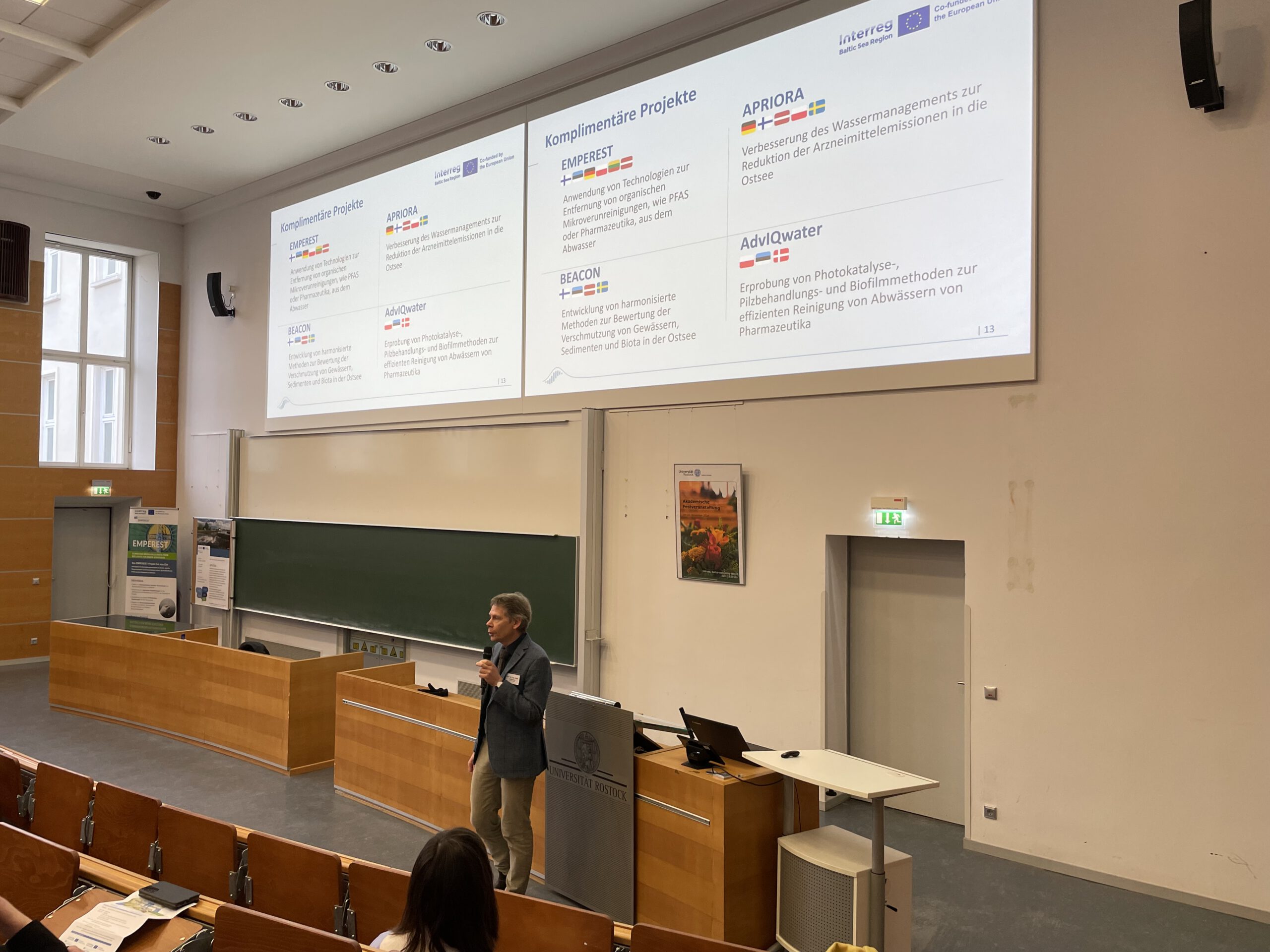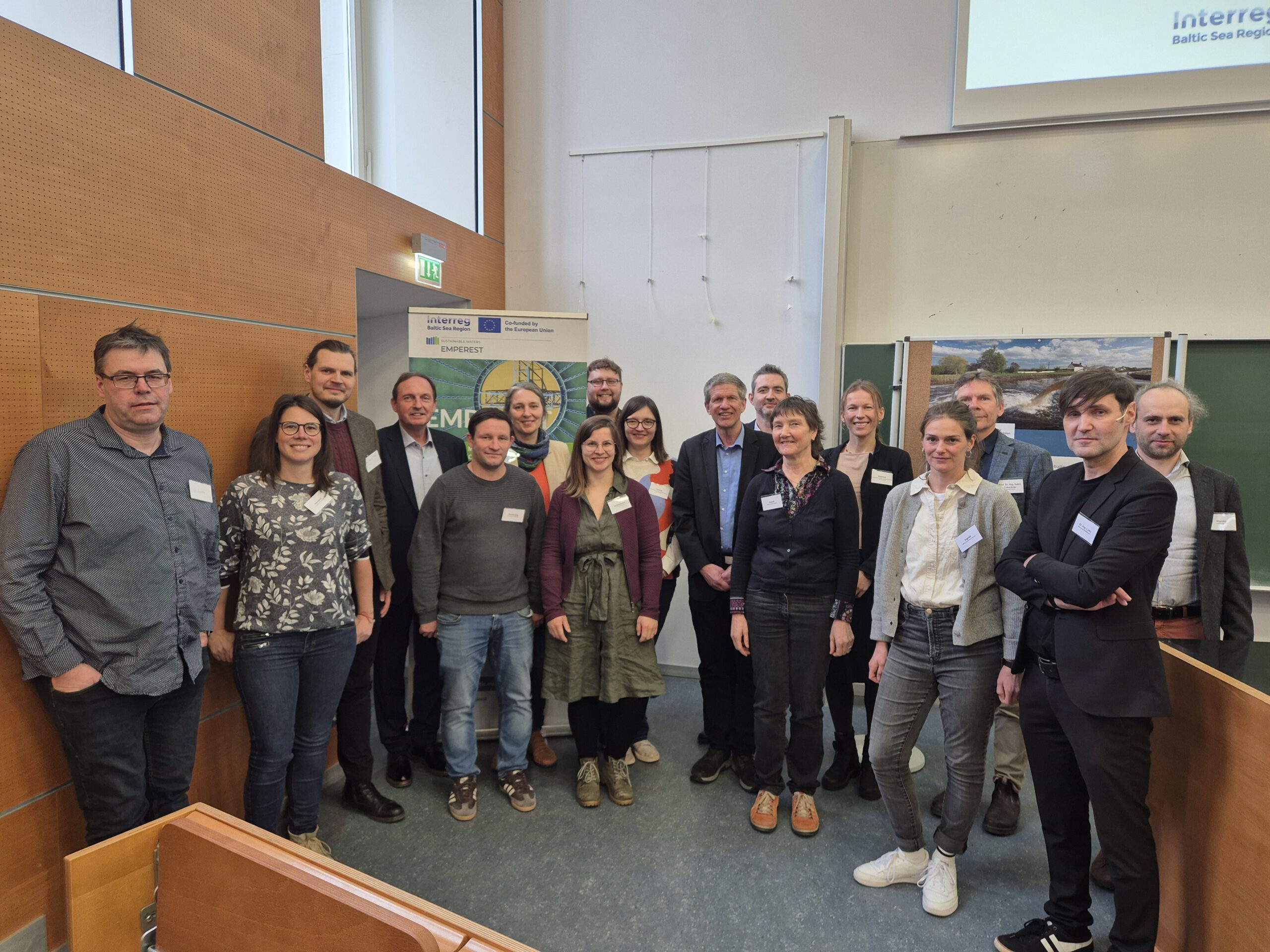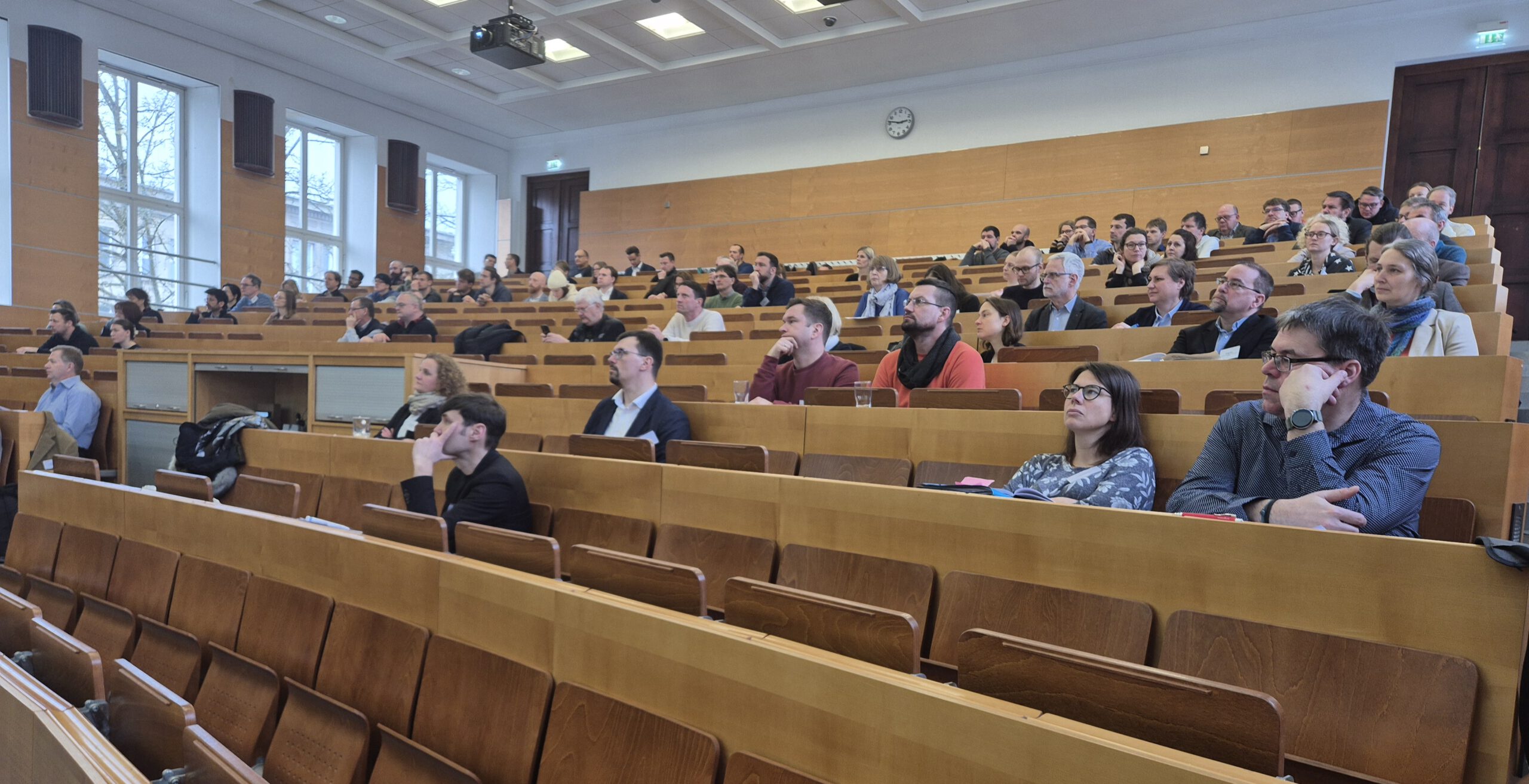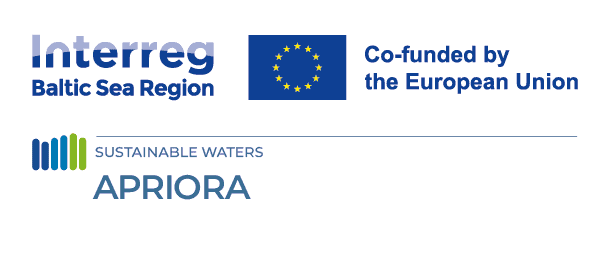
Together again: APRIORA and EMPEREST workshop in Rostock on Pharmaceuticals and PFAS in the water cycle
01 March 2025
On 12 February 2025, nearly 100 stakeholders from utilities, regional authorities and agencies, industry, and research came together at the University of Rostock in Germany for the workshop “PFAS and Pharmaceuticals – Micropollutants in the Water Cycle”. The event was co-organised by the DWA Regional Group North-East and the University’s Department of Agricultural and Environmental Sciences.
Held within the framework of the Interreg Baltic Sea Region Programme, the workshop showcased the collaboration between two complementary projects: APRIORA, focusing on a risk assessment system for pharmaceutical emissions to monitor and model concentrations, and EMPEREST, which addresses PFAS contamination. This partnership highlights the strength of Interreg BSR in supporting transnational cooperation to improve water quality throughout the region together.
The workshop opened with a welcome by Orsolya Schulz, Interreg project manager, who introduced the broader context and mission of the Interreg Programme. She emphasised how projects like APRIORA and EMPEREST exemplify the value of cross-border cooperation in tackling shared environmental challenges.
Prof. Dr.-Ing. Jens Tränckner from the University of Rostock introduced into the field of pharmaceuticals in the water cycle and how (much) is reaching the environment, setting the stage for APRIORA challenges. Vanessa Ingold from DWA picked up the audience and narrowed down from the broad range of PFAS substances towards EMPEREST objectives. These keynotes set the stage for a series of in-depth expert contributions.
Ingo Warnke (Federal Centre for Micropollutants, SZB UBA) provided insight into current water legislation, followed by Angela Nawrocki (LUNG MV), who reported on recent pharmaceutical findings in Mecklenburg-Vorpommern’s surface waters.
The second part of the event focused on the practical outcomes and approaches of both projects, presented by experts and project partners. Highlights included:
- PFAS monitoring and assessment strategies from the EMPEREST project, presented by Markus Raudkivi (HELCOM),
- A PFAS groundwater remediation case study in Berlin by Regina Gnirß (BWB),
- Advanced treatment options for removing micropollutants from wastewater by Prof. Dr.-Ing. Matthias Barjenbruch (TU Berlin),
- And an analysis of treatment performance and costs for advanced wastewater systems, shared by Dr. Lyko (Emschergenossenschaft and Lippeverband).
The workshop highlighted a strong consensus: addressing micropollutants in the water cycle requires a joint effort. From stronger regulation and source control to advanced technologies and increased public awareness, coordinated action is key. Want to see more comments and insights? Then see this related news article!
The event served as a powerful example of how the Interreg Baltic Sea Region Programme fosters cross-border collaboration. Through shared expertise and aligned strategies, APRIORA and EMPEREST are contributing significantly to safeguarding the water resources of the Baltic Sea Region.






